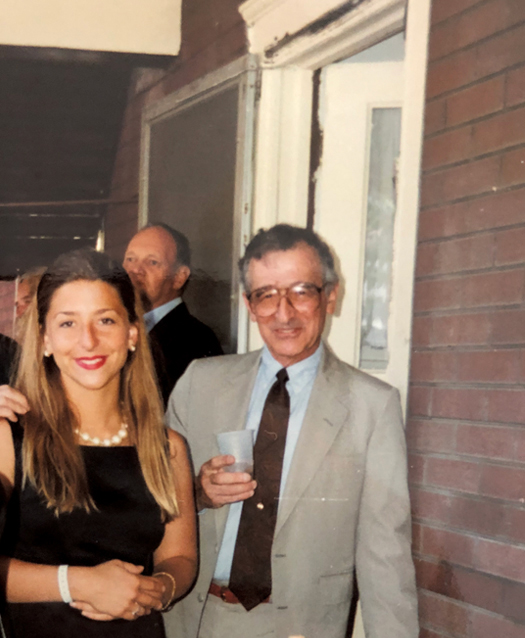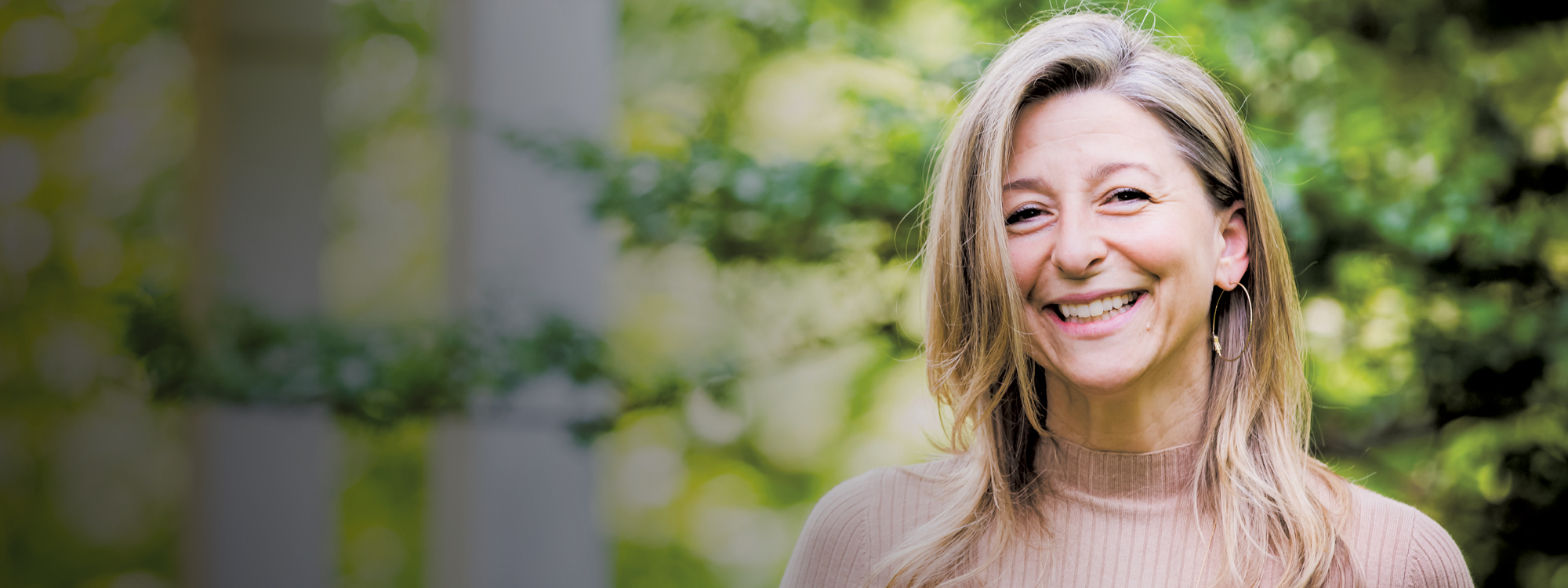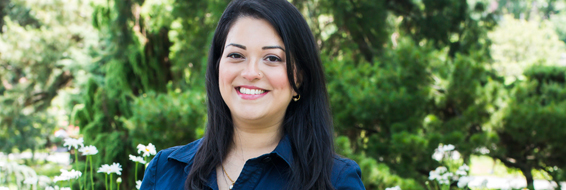In 1993, four decades after Nicholas S. Gentile Jr. graduated from Lehigh, he watched as his daughter, Jennifer, received her degree from his alma mater. “As I sat in the arena watching her graduate,” he said recently, “I looked back 40 years, thinking it would have been impossible for a woman to graduate in 1953, and that was a terrible waste of human competence.”
When I think back to growing up, my father definitely talked about women at Lehigh and that they weren’t permitted to attend when he was there and that he found that to be a tragedy. I’ve often thought about this, especially in the beginning of my professional career. There are belief systems that are in the family home, and you see how it can permeate an individual’s world vision of what’s possible. I’m not sure that it was always directly said [at home], but the importance of women at the table was always present in each conversation.
I don’t think I came [to Lehigh] knowing that I was going to be an East Asian Studies major. I began as an English major. I remember the impact my Buddhism professor, Ken Kraft, had on my interest in Japan, and I think one of my English classes—because I was exposed to such diverse literature—made me want to study and pursue the Japanese language. That was what brought me to that major.
I had a few experiences on the academic side and the friendship/relationship side and some community interactions that I felt were formative.

Jennifer Gentile Long ’93 with her father, Nicholas S. Gentile Jr., the night before her graduation from Lehigh.
On the academic side, as an English major, I was exposed to deep character analysis, which has helped me as a lawyer and continues to help me, not only in evaluating a case but in understanding human behavior. It provided me with the tools to describe how perpetrators can have an outward persona that is celebrated while they commit atrocious violence in their homes. The research skills my professors honed in me provided me with the training and skill necessary to explain the impact of trauma on victims of rape and abuse and how their behavior might run counter to expectations of others. I feel the analysis and the literature that I was exposed to helped me understand human behavior, trauma, emotion in a way that allows me to be a better advocate for justice for victims.
My Lehigh friendships are really important to me, and some of my closest friends today are women I met at Lehigh. Many of them were in my sorority [Gamma Phi Beta], but I certainly had friends outside of my sorority. I met some of the most driven, humble, smart, thoughtful individuals, who had already achieved extraordinary things before even beginning college. They were high achievers, whether it was in an extracurricular activity or government or outside employment, who have gone on to achieve at science, business and other complex areas. My most significant relationship from Lehigh, however, is my marriage to Dan Long ’92, with whom I shared one class my freshman year and never really got to know as a student. However, it was our shared Lehigh experience that prompted mutual friends to connect us almost 10 years after I graduated, and the rest is history!
The most important lesson I learned at Lehigh, from my formal education through the people whom I met, is the importance of action and the importance of having the courage to do something about an issue that you care about. I learned how to identify and analyze the relevant information, develop the necessary expertise and then put them into action. And, I learned that you can’t be afraid of failure. The lessons you learn from failure can make your efforts and strategies even stronger.
While at Lehigh, Long volunteered in the Bethlehem, Pa., community at Turning Point, a shelter for victims of abuse and their children, and at New Bethany Ministries, which provides food, housing and other support to those working toward self-sufficiency.
"The most important lesson I learned at Lehigh, from my formal education through the people whom I met, is the importance of action and the importance of having the courage to do something about an issue that you care about."
Those two organizations were the most meaningful [community service projects that I was involved with]. I don’t honestly remember exactly how I learned about each organization, but it was definitely through Lehigh and its constant encouragement of students to engage with the community. The experiences I had interacting with the staff and clients of each of these organizations became formative in my future career path.
I knew that domestic violence, sexual violence and adverse childhood experience existed, but I didn’t know about all of the systems and community organizations—shelters, after-school homework [help], counseling, other people providing support to survivors, and the role of the legal system, both criminal and civil, with lawyers working to provide protection and justice to survivors—having a significant impact on survivors’ well-being.
I look back, and I can almost draw the thread, from my experiences at Lehigh through later volunteer work and my interest in becoming a lawyer, where I started to recognize that the criminal justice system, while not the solution to ending violence, is an important piece that could make an impact. When it operates well, it helps strengthen and empower victims, many of whom are from historically marginalized communities. When it operates poorly, it creates not only problems in the immediate case but can stop people from seeking help in the future. And I recognized that prosecutors were uniquely positioned to be leaders within the criminal justice system and in their communities.
After Lehigh, Long earned a law degree from the University of Pennsylvania. She worked as a prosecutor in the Philadelphia District Attorney’s office, then at the American Prosecutors Research Institute in Washington, D.C. In 2009, she cofounded AEquitas, a nonprofit that aims to improve the quality of justice in gender-based violence and human trafficking cases.
AEquitas is made up of former prosecutors, and we are the only national effort focused on providing prosecutors with the training and technical assistance they need to achieve justice in gender-based violence and human trafficking cases. Prosecutors have the ethical duty to achieve justice, and they have the inherent discretion that allows them to determine which cases move forward and how cases resolve. Part of our focus, therefore, is to ensure that prosecutors are making decisions that achieve justice and collaborating with multidisciplinary partners to increase victims’ access to it.
AEquitas is working with Lehigh and [Lehigh Computer Science Professor] Dan Lopresti specifically on cases of human trafficking and gender-based violence. We are collaborating with the university, Lehigh County Office of the District Attorney and other local and national partners to improve investigations, prosecutions and support for human trafficking victims by supporting their efforts to make sense of the large amount of data increasingly uncovered as a result of human trafficking investigations, as well as data uncovered through the course of investigations into other crimes that may contain indicators of sex trafficking and/or labor trafficking.



